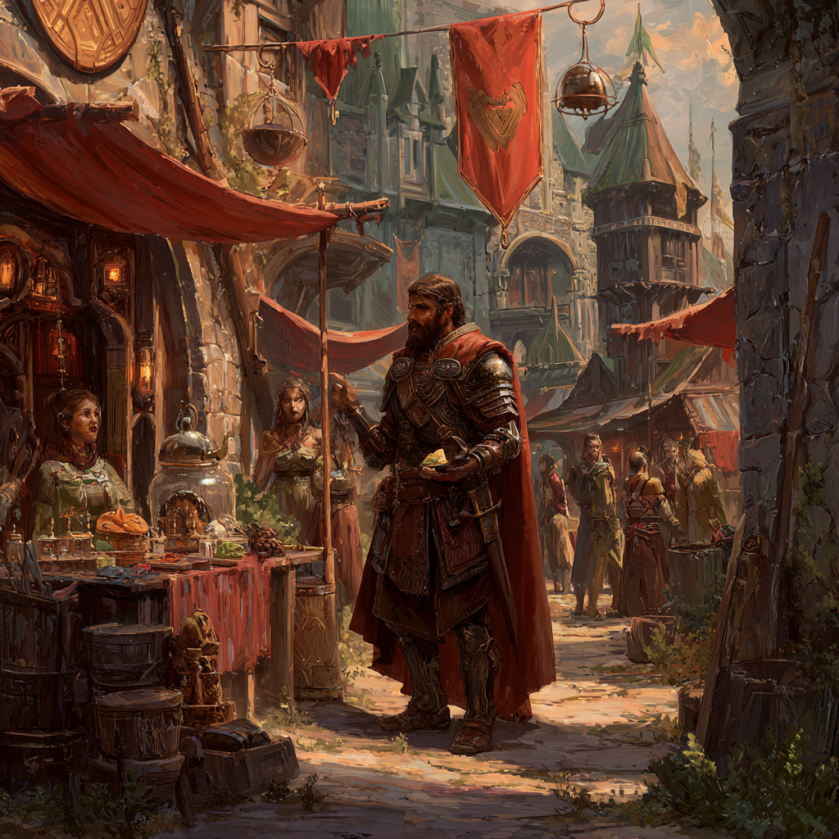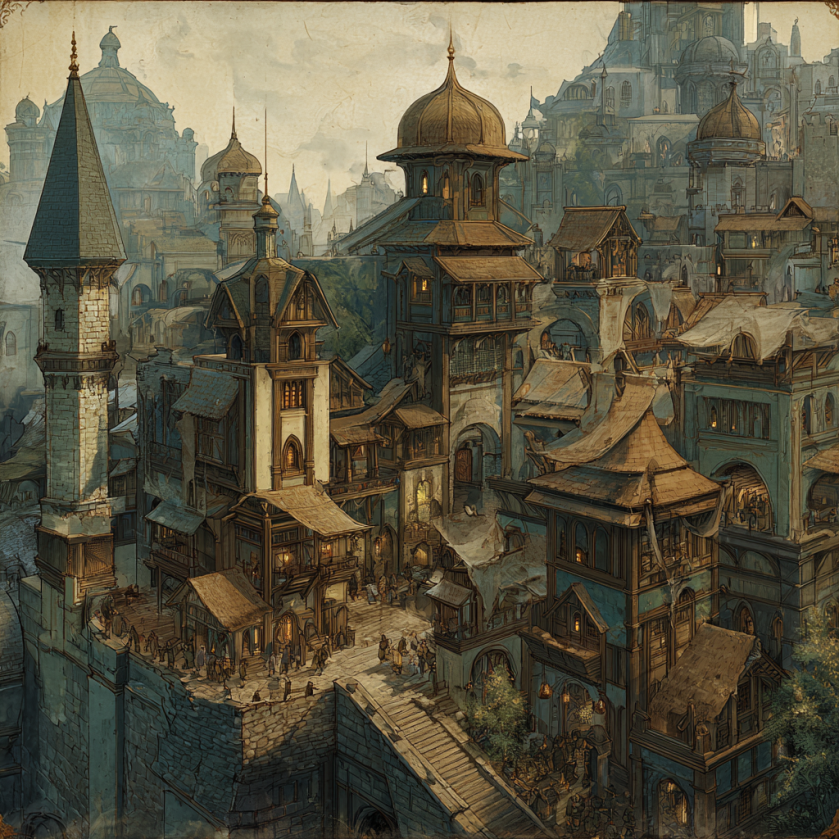Humans
Humans adapt quickly to new situations and environments. Their lifespans average 75 years, which drives them to act decisively rather than deliberate for decades like longer-lived races. This urgency creates constant tension with longer-lived allies who counsel patience humans cannot afford. What feels like careful planning to an elf feels like paralysis to a human watching precious years slip away. Human settlements spring up around trade routes, resource deposits, and strategic locations, often growing from temporary camps into permanent towns within a generation.
Physical Characteristics
Human appearance varies considerably across The Crescent's regions. Those living in different climates and terrains develop appropriate physical adaptations over generations. Urban populations often show mixed heritage from multiple races due to humans' tendency to intermarry across racial lines.
Most humans stand between 5'5" and 6'2", reaching full maturity by their early twenties. Their lifespans rarely exceed 75 years, a brevity that shapes everything from their urgent ambitions to their flexible social structures.
Culture and Governance
Human societies adapt to local conditions rather than following rigid traditions. Rural settlements follow seasonal councils and harvest bonds. Urban humans navigate complex bureaucracies, often clashing with entrenched ruling classes in cities like Cairune. Trade communities organize around merchant families and guild partnerships.
Humans adopt religious practices and customs from neighboring peoples, adapting them to local conditions. A farming settlement might worship both halfling hearth deities and dwarven forge gods, holding combined festivals that serve their mixed community.
Generational Urgency
What happens when human urgency clashes with the patient planning of longer-lived peoples?
The dilemma:
- Crisis demands immediate action but elven advisors counsel decades of careful preparation
- Dwarven traditions require time humans don't have
Humans must make decisions that will outlast their grandchildren while working with allies who barely consider a decade meaningful. It is the loneliness of living in fast-time among slow-time peoples.
Whose wisdom prevails? How do you balance the need to act quickly with the risk of making decisions that will outlast your lifetime but affect generations of your longer-lived allies?
Traditions
The Climb: Human communities celebrate this holiday on the 14th of Goldfall, gathering to recognize achievements and set ambitious goals for the year ahead.
Relations with Other Peoples
If there's a mixed heritage child in The Crescent, chances are one parent is human. Their adaptability and relatively short lives make humans less bound by ancient prejudices or rigid social hierarchies that divide other peoples. While not universally beloved, humans get along reasonably well with just about everyone.
Cultural Bridges
Human adaptability makes them natural mediators, but this flexibility can create identity struggles.
Your character might feel pressure to represent "the human perspective" in mixed groups, even when humans have no unified culture to represent.
The challenge: Navigating between being accepted by everyone and belonging fully to no one. Do they embrace their role as cultural translator, or do they seek a community where they can simply be themselves?
This flexibility makes humans natural diplomats and traders, often serving as go-betweens when other races struggle to find common ground. Humans were among the first to adopt skyship technology, and they remain the most likely to use aerial travel for both trade and exploration. It also means human bloodlines weave through many family trees across The Crescent, creating kinship bonds that cross traditional racial boundaries.
Dwarves and Halflings: The strongest alliance in The Crescent. These three peoples share practical worldviews, complement each other's skills, and frequently intermarry. Human settlements often spring up near dwarven holds and halfling shires, creating tightly integrated communities that weather hardships together.
Character Creation Notes
Humans work well in any class or background, reflecting their adaptability and diverse societies. Consider where your character grew up and how local conditions shaped their skills and outlook.
Regional Backgrounds: Urban diplomats, coastal merchants, rural crafters, or wandering innovators all represent common human paths.
Cultural Integration: Human characters often know customs from multiple peoples, having grown up in mixed communities or traveled extensively for trade or learning.
Ambition and Time: Remember that human urgency stems from awareness of their short lives. What drives your character to act now rather than wait for perfect conditions?


